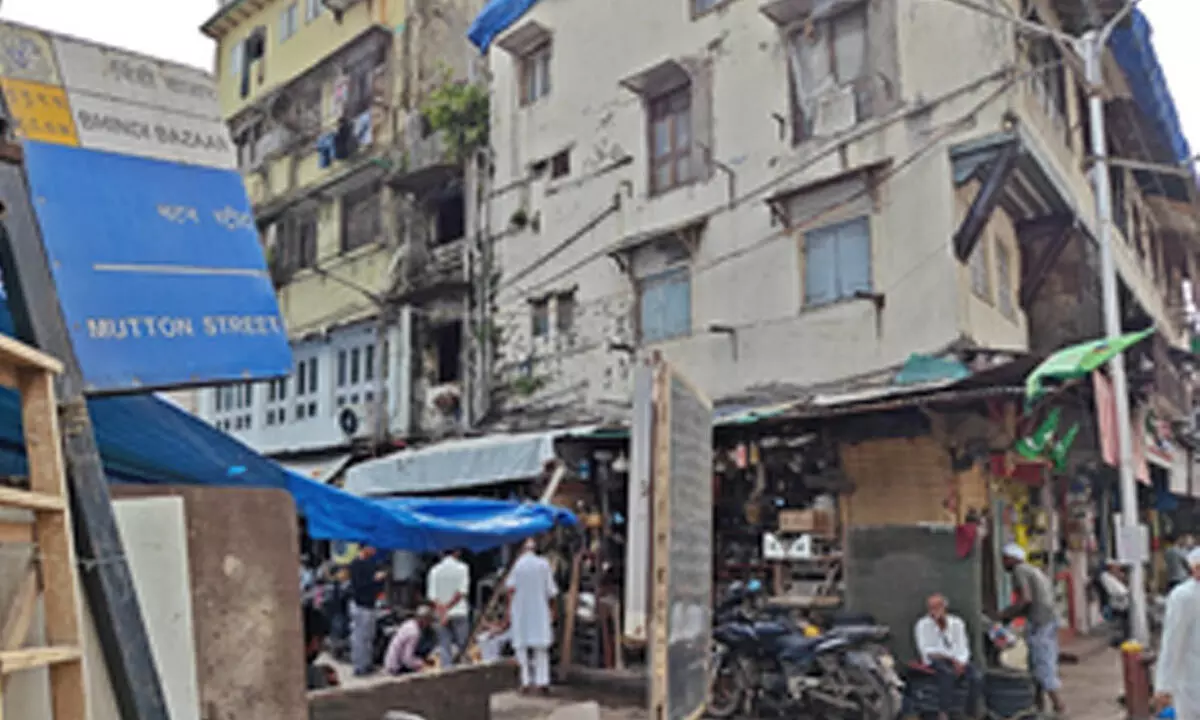On Gandhi Jayanti-eve, PETA seeks to rechristen Mumbai's famed ‘Mutton Street’ as ‘Ahimsa Marg’
Share :

On the eve of Mahatma Gandhi’s 155th birth anniversary, PETA India has urged Maharashtra Chief Minister Eknath Shinde to rename South Mumbai’s noted and notorious ‘Mutton Street’ as ‘Ahimsa Marg’ in honour of the Father of the Nation.
Mumbai: On the eve of Mahatma Gandhi’s 155th birth anniversary, PETA India has urged Maharashtra Chief Minister Eknath Shinde to rename South Mumbai’s noted and notorious ‘Mutton Street’ as ‘Ahimsa Marg’ in honour of the Father of the Nation.
In a letter to CM Shinde, PETA said that as a global tribute to Mahatma Gandhi, his birth anniversary is celebrated as the ‘International Day of Non-Violence’ every year.
“The ‘Mutton Street’ has a colonial past and is associated with the meat trade, which contradicts Gandhiji’s value of non-violence and non-vegetarianism,” PETA India Manager, Kiran Ahuja pointed out in the letter to the CM.
“Renaming ‘Mutton Street’ as ‘Ahimsa Marg’ would be a glowing tribute to Gandhiji’s memory and also remind the people living in the heart of Mumbai to respect all animals and carry forward his legacy daily by choosing healthy and delicious plant foods,” Ahuja added.
Referring to the notorious side of ‘Mutton Street’ – which is alternatively known as ‘Chor Bazaar (Thieves Market)’, PETA India said that a new name symbolising peace could discourage the sale of purported stolen good allegedly flooding the area and attract more vegan food businesses, which in turn would attract more domestic and international tourists.
In its letter PETA India has quoted Gandhiji: “To my mind the life of a lamb is no less precious than that of a human being.… I hold that the more helpless a creature, the more entitled it is to protection by man from the cruelty of man.”
The letter also dwelt on how killing poultry or bovine animals or fish for meat and food causes massive violence besides afflicting the humans with various types of life-threatening diseases.
“As it came out during the Covid-19 global Pandemic, the use of animals as food is also linked to multiple zoonotic diseases like bird-flu, swine-flu or Coronavirus, while vegan food habits are helpful to combat the worst effects of the climate change catastrophe,” the letter stated.
The origins of ‘Mutton Street’ alias ‘Chor Bazaar’, said to be a take on the original ‘Shor Bazaar (Noisy Market)’ can be traced back to around two centuries, when Mumbai barely extended till Mahim isle, as several hamlets with people from different communities living and thriving there.
The ‘Mutton Street’ finds reference in several old treatises, including the voluminous “Bombay Place-Name and Street-Names” (1917 edition), authored by Samuel T. Sheppard.
‘Mutton Street’ is among the peripheral areas that become a foodies’ paradise during the holy month of fasting Ramadan (upcoming February-March 2025), and has been in existence for around two-and-half centuries as the renowned Mohammed Ali food market.
Pydhonie’s Karim Patel, 65, partner of the 55-year-old family enterprise Sony Pathani, specialising in Pathani suits and rainwear, told IANS that the region has a rich history of more than two centuries, and the Ramadan food market is directly linked with the antecedents of the imposing Minara Mosque, now over 250-years old.
Sheppard said in his book, referring to ‘Mutton Street’ (Page 106)’: “Named after the old mutton and fish market, part of the Nulla Bazaar near Erskine and Duncan roads. This and the neighbouring vegetable market were unpaved and consisted merely of a few ranges of low, narrow sheds surrounded by a rough wooden palisade.”
“Like the rest of old and quaint Mumbai, now, the entire vicinity is undergoing a change of skyline with scores of dilapidated structures being demolished to make way for swank towers encompassing the familiar old roads, streets neighbourhoods and fond memories,” sighed Patel.













